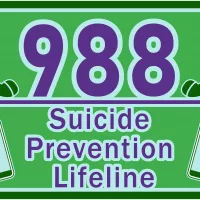
A new report examines the rollout of the 988 mental health crisis line in each state and found Oregon has more work to do.
The national three-digit 988 Suicide and Crisis Lifeline is nearing its second anniversary. While the report said progress is needed, it does highlight a bright spot in the state: Oregon’s YouthLine. The service offers crisis support from teens to teens from 4 p.m. to 10 p.m.
Jill Baker, youth suicide prevention policy coordinator for the Oregon Health Authority, said it is a developmentally important intervention strategy.
“There’s lots of young people who volunteer at YouthLine,” Baker pointed out. “These are young people who have either an interest in mental health or interest in supporting other youth, or young people who have lived experience with mental health challenges or suicide themselves.”
Baker pointed out the addition of texting with the 988 crisis line has also been a game changer for young people and suicide prevention.
Angela Kimball, chief advocacy officer for the mental health advocacy organization Inseparable, said one issue states need to solve is finances, including how the program is funded and ensuring services are available to everyone regardless of their health insurance status.
“That means that a system has to be built to not just be dependent on Medicaid, for example,” Kimball contended. “Legislatures actually need to take the step to ensure that there are other funding sources besides Medicaid.”
Baker added the crisis line is important but is just one part of suicide prevention.
“Anything that increases the ability for a young person to feel a sense of connection or belonging to their culture, to their community, to other people, to nature,” Baker outlined. “All of those things increase a young person’s protection against suicide.”















